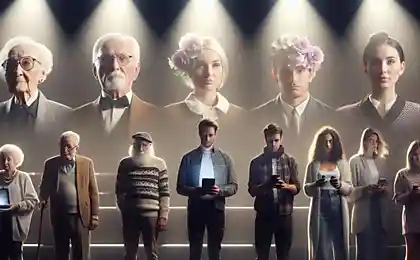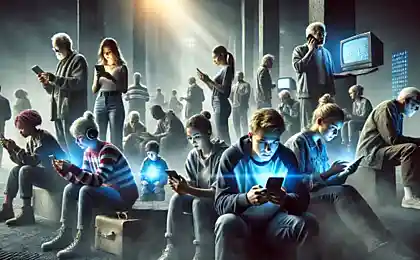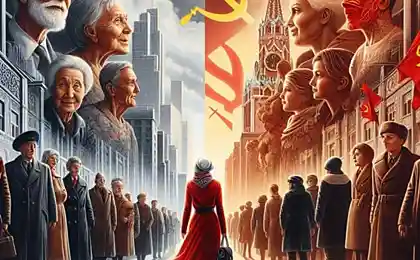319
Generations of XX-XXI century: from the Great to Alpha - who are they?

The world has undergone more changes in the last hundred years than in all previous eras. Each new generation didn’t just change their minds; they perceived reality in their own way. In this article, we will look at how generations of the XX-XXI century were formed, what values drive them and why understanding these differences is important for modern society.
The question of understanding generations is not just fashion. It is the key to effective communication, business, education and even international politics.

The Great Generation (1901–1927)
Growing up against the backdrop of world wars and the Great Depression, representatives of the Great Generation were a symbol of duty, endurance and sacrifice. These people created the economic foundations of the post-war world, and their moral attitudes – reliability, loyalty, discipline – formed the stable foundation of modern society.
Silences (1928–1945)
A generation born in a period of instability has chosen a strategy of survival through adaptation. They respected institutions, were loyal to companies, and sought a calm, predictable life. They are often called “silent” for their restraint and willingness to follow rules rather than protest.
Baby Boomers (1946–1964)

After the end of World War II, a demographic explosion began - hence the name of the generation. Boomers grew in an era of optimism and economic growth. They believed in progress and the power of education. However, it was they who initiated the most ambitious social changes: the civil rights movement, the sexual revolution, anti-war protests.
Generation X (1965–1980)
Children of the age of change, economic recession and divorce. They became independent early on and learned to rely on themselves. Generation X values pragmatism, freedom of choice and work-life balance. They were the first “digital immigrants” who mastered computer technology.
Millennials (1981–1996)
Millennials have grown up with the internet, mobile phones and globalization. They value meaning in work, environmental responsibility, social justice. Millennials are less materialistic than their parents and invest more in experiences than things. For them, self-actualization and diversity are important.
Generation Z (1997–2012)
The first generation that does not remember the world without the Internet. They think visually, actively use social networks and perceive technology as an extension of themselves. Generation Z is committed to authenticity, inclusiveness, and the importance of mental health.
Lifehack: To interact effectively with Generation Z, use short video formats, sincerity and transparency in communication.
Generation Alpha (2013–2025)

The youngest generation today. Alphas grow up in the world of artificial intelligence, virtual and augmented reality. Their training will be based on completely new principles: gamification, personalized approach and integration of technology into everyday life. It is already clear that this will be the most technologically advanced and educated generation in the history of mankind.
Why is it important to understand generations?
Understanding the characteristics of generations helps:
- Increase the effectiveness of marketing and advertising;
- Improve intergenerational interaction at work;
- Develop deeper personal relationships;
- Anticipate social trends and adapt to them.
Council: When dealing with people of different generations, avoid stereotypes. Focus on your partner’s values, not just their age.
Conclusion
Each generation has been shaped by unique historical, technological and cultural conditions. Understanding these differences allows you to build more harmonious communities, business strategies, and personal connections. Despite our differences, we are united by a desire for a better future.
Glossary
- The Great Depression World Economic Crisis of 1929-1939
- Population explosion A sharp increase in the birth rate after World War II.
- Digital migrants People who have mastered digital technologies in adulthood.
- Globalization The process of strengthening ties between countries in economy, culture and politics.
- Inclusion The desire to create a comfortable environment for all people, regardless of differences.
- Gamification Use of game elements in non-game processes for motivation.
- Personalized learning adaptation of educational materials to the individual characteristics of the student.
- Artificial Intelligence (AI) Systems capable of performing tasks requiring human intelligence.
6 Reasons Why You're Sad, Even If Life Is All Right
9 ways to be a support for loved ones in difficult times and not break yourself























